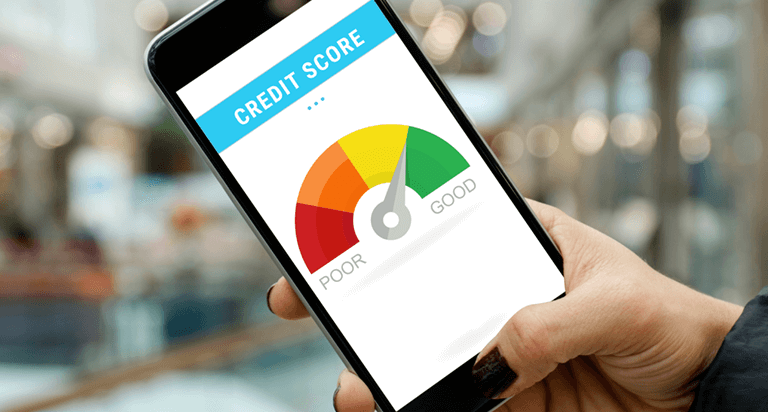Credit Scores and the Home Buying Process
Highlights:
- When it comes to buying a home, your credit scores can play a big role
- There are four areas credit scores may affect the home-buying process
- Lower credit scores may mean you are offered higher mortgage interest rates
- You may also have to pay higher premiums for private mortgage insurance (PMI)
Buying a home can be an exciting step in your life. But it’s important to know how your credit scores may affect the home buying process. From the amount of money you can borrow, to whether you qualify for the best loan terms, credit scores can impact at least four aspects of home buying.
Loan amounts
Before you fall in love with a house out of your price range, you need to know what you can afford. Credit scores can affect how much money you can borrow for a given property. Like other lenders and creditors, mortgage lenders may evaluate your credit scores – along with other factors – to assess the likelihood you will pay the loan back as agreed. Your credit scores and other factors, such as your income, can help determine the amount of money you’ll qualify for, as well as the interest rate you may pay. Generally, the lowest interest rates are offered to the lowest-risk consumers, or those deemed most likely to pay a loan back as agreed.
You may see the amount of money you can qualify for called the loan-to-value ratio or LTV. The LTV is the percentage of the home's appraised value you can borrow. Usually, if you have higher credit scores, you can qualify for a higher LTV.
- An example: Peter has higher credit scores. He qualifies for a 95 percent LTV on a $200,000 house, meaning he can borrow $190,000. On the other hand, David has lower credit scores. He qualifies for an 80 percent LTV on the same house, which allows him to borrow $160,000.
Mortgage types
There are a few different types of mortgages you can apply for, but the most common are conventional/fixed rate, interest-only or adjustable rate mortgages; FHA loans; or VA loans. Your credit scores may affect which of these mortgages you may qualify for and at what terms.
Sometimes the difference between credit scores in the 600 range and credit scores in the 700 range could equal about half a percent in interest. It may seem small, but in the long run you may end up paying hundreds or thousands of dollars more.
- An example: Peter’s credit scores qualify him for an interest rate of 3.625 percent, meaning his monthly payment would be $912 on his $200,000 fixed-rate mortgage. On the other hand, David’s credit scores qualify him for an interest rate of 4.125 percent, meaning his monthly payment is $949 on the same $200,000 fixed-rate mortgage. Over a 30-year mortgage, that adds up to $13,320 more paid in interest.
There are a few types of mortgages designed for people with lower credit scores. FHA loans, for example, are designed to help first-time homebuyers with lower credit scores or shorter credit histories qualify for a mortgage.
Down payment
Credit scores may also affect how much you’ll be required to pay as a down payment. Many mortgages require a down payment of at least 20 percent of the home's sale price. If you have higher credit scores, you may have some flexibility in how much you need to pay up front. On the other hand, lower credit scores may mean you must pay a larger down payment.
Private mortgage insurance
Along with mortgage rates and down payments, credit scores could also affect the private mortgage insurance, or PMI, premium you pay if required. PMI insures the loan lender in case you are unable to make payments – also called defaulting – on your loan. Banks and lenders may require PMI if your down payment is less than 20 percent of the purchase price. Just as credit scores can affect your mortgage interest rate, they can also affect PMI premiums.
- For example: Peter’s excellent credit scores qualify him for .54 percent PMI – roughly $90 per month – while David’s credit scores qualify him for a higher rate of PMI, meaning his monthly payments will be higher.
To sum up
Lower credit scores can potentially limit how much money you can borrow to buy a home and can potentially lead to higher interest or PMI rates.
Before you begin the home buying process, check your credit reports and credit scores to get an idea of how healthy your credit may be, as well as to review the information being reported by lenders and creditors. You’re entitled to a free copy of your credit reports every 12 months from each of the three nationwide credit bureaus by visiting www.annualcreditreport.com. You can also create a myEquifax account to get six free Equifax credit reports each year.
In addition, you can create a myEquifax account and click "Get my free credit score" on your myEquifax dashboard to enroll in Equifax Core Credit™ for a free monthly Equifax credit report and a free monthly VantageScore® 3.0 credit score, based on Equifax data. A VantageScore is one of many types of credit scores.
Credit scores typically are not part of credit reports; learn about other ways to check credit scores.
Allow yourself enough time to address any information on your credit reports you believe may be inaccurate or incomplete. Some advance planning may make a big difference when it’s time to purchase a home.

Sign up for a credit monitoring & ID theft protection product today!
For $19.95 per month, you can know where you stand with access to your 3-bureau credit report. Sign up for Equifax CompleteTM Premier today!



